
Why Electrolytes Are Essential for Active Women: A Guide to Natural Replenishment
When it comes to staying hydrated, electrolytes are the unsung heroes that keep your body balanced and energized, especially for active women. Whether...
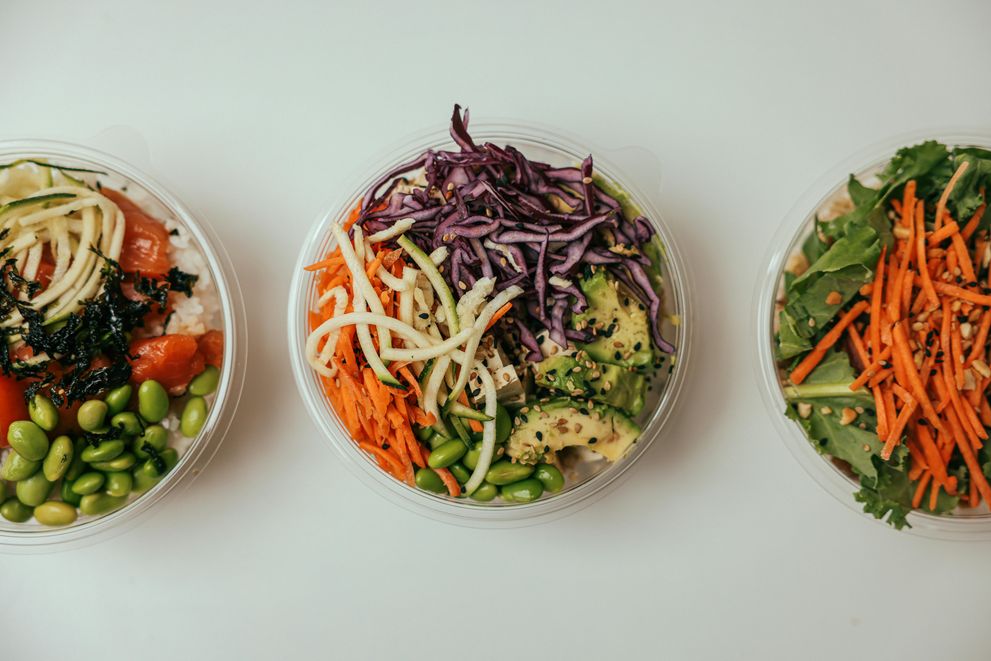
Hello, lovely readers! Today, we’re diving into the empowering world of anti-inflammatory foods and their game-changing potential for women’s health. If you’ve thought of inflammation as just another health buzzword, it’s time to lean in. This natural bodily response can become a foe when it lingers too long, contributing to various health issues that disproportionately affect women, from autoimmune diseases to hormonal imbalances and beyond.
note
But here’s the good news: through the vibrant world of anti-inflammatory foods, we have the power to make a difference in our own well-being.
This isn’t just about choosing what to eat; it’s about embracing foods that fight inflammation, offering us a natural pathway to health and vitality.
So, let’s embark on this journey together, discovering how simple, delicious choices can be our allies in striving for a healthier, more vibrant life. Ready to unlock the secrets of anti-inflammatory eating and transform your health? Let’s get started!
First off, let’s decode inflammation. In the simplest terms, it’s your body’s response to injury or infection - a way of saying, “Hey, something’s not right here!” While short-term (acute) inflammation is a good thing, chronic inflammation can play the villain in our story, contributing to a plethora of health issues.
For women, the plot thickens. From autoimmune diseases, which are, according to the Emerging Infectious Diseases Journal, more prevalent in women (autoimmune diseases affect approximately 8% of the population, 78% of whom are women), to hormonal imbalances and the challenges of aging, inflammation can be a key player.
tip
Knowing this sets the stage for why anti-inflammatory foods are not just a choice but a necessity for us.
What exactly earns a food the prestigious title of “anti-inflammatory”?
Well, it’s all about the bioactive compounds - those magical substances found in foods that excel at calming inflammation. Picture the antioxidants in vibrant berries or the omega-3 fatty acids abundant in fatty fish. According to the Journal of the American College of Nutrition these are like superheroes for your body, swooping in to battle inflammation and bolster overall well-being.
But wait, there’s more!
Our gut health plays a starring role in the inflammation saga. A harmonious gut flora translates to less inflammation, and here’s the delightful twist: many anti-inflammatory foods also double as champions of gut health. It’s like a harmonious symphony of deliciousness and wellness working in perfect harmony within your body.
info
So, next time you reach for those blueberries or savor a bite of salmon, know that you’re not just tantalizing your taste buds but also nurturing your gut and taming inflammation like a pro.
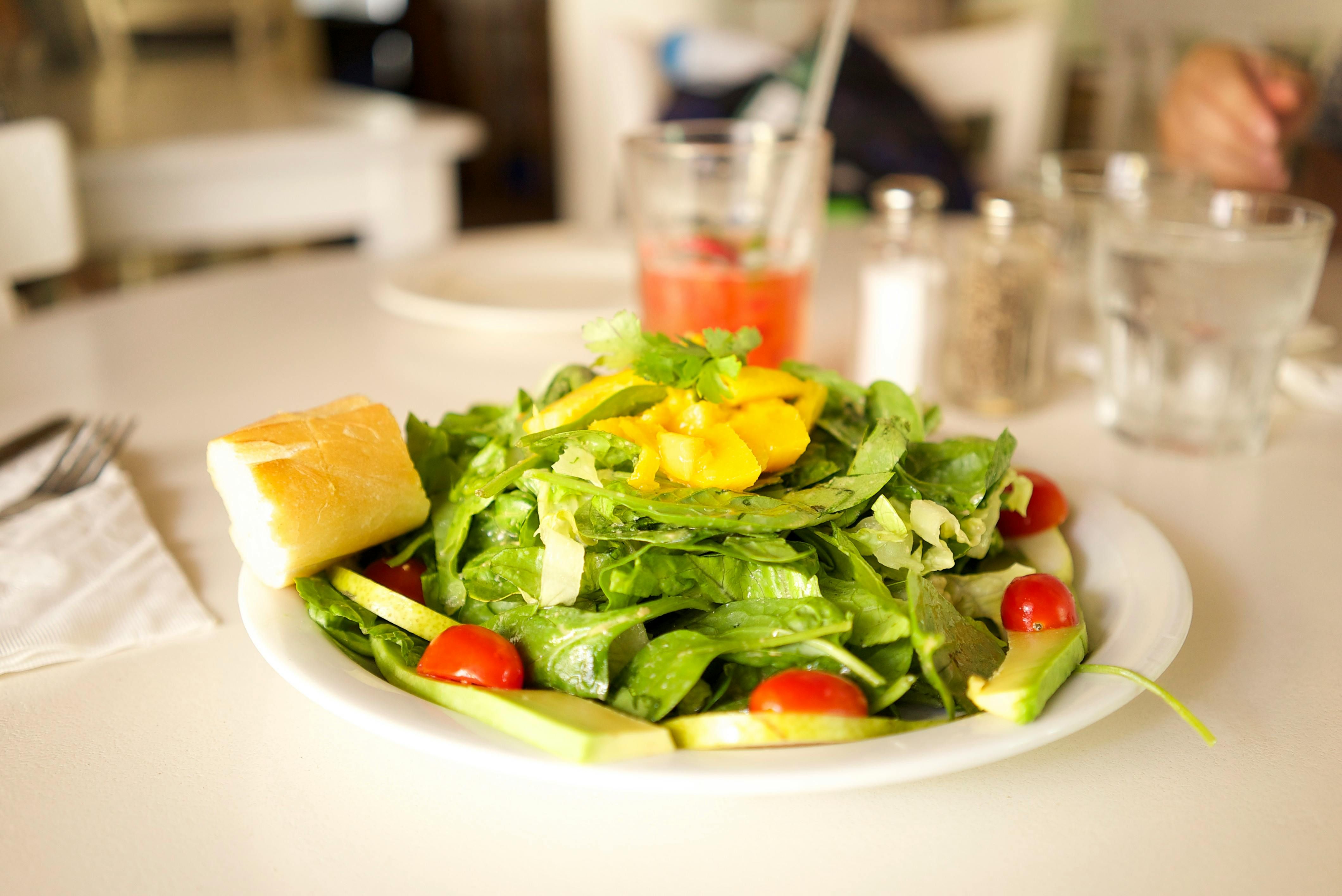
Now, onto the stars of our show - the foods that pack a powerful anti-inflammatory punch.
Blueberry: A powerhouse of antioxidants, blueberries are famed for their high flavonoid content. Research published by The Advances in Nutrition has shown that these berries can significantly reduce the risk of chronic diseases by combatting inflammation. Their versatility makes them an easy addition to any meal, from breakfast yogurts to smoothies.
Cherries: Adding to our berry section, cherries, especially tart cherries, are another fruit celebrated for their anti-inflammatory properties. Studies by Ageing Research Reviews suggest that tart cherry juice can reduce muscle pain and soreness post-exercise, making cherries a great choice for active individuals.
Spinach and Kale: Moving on to the greens department, spinach and kale take the spotlight. These leafy greens are not just salad staples. Biomedicines say they’re nutritional powerhouses packed with vitamins and anti-inflammatory properties. Their rich, dark colors signal a high content of phytonutrients, which help fight inflammation and protect your body against disease. Including these vegetables in your meals can boost your health and keep inflammation at bay.
Broccoli: Broccoli deserves a special mention among vegetables for its health benefits. Rich in sulforaphane, an antioxidant with potent anti-inflammatory effects, broccoli not only supports your immune system but also helps protect against cancer.
Omega-3 Rich Foods: Healthy fats, particularly those rich in omega-3 fatty acids, are like the peacekeepers of your hormonal health. Foods such as salmon, chia seeds, and walnuts not only offer a delicious way to enrich your diet but also provide essential fats that your body needs to function optimally. These fats are particularly beneficial as you age, helping to maintain hormonal balance and reduce inflammation as Nutrients says.
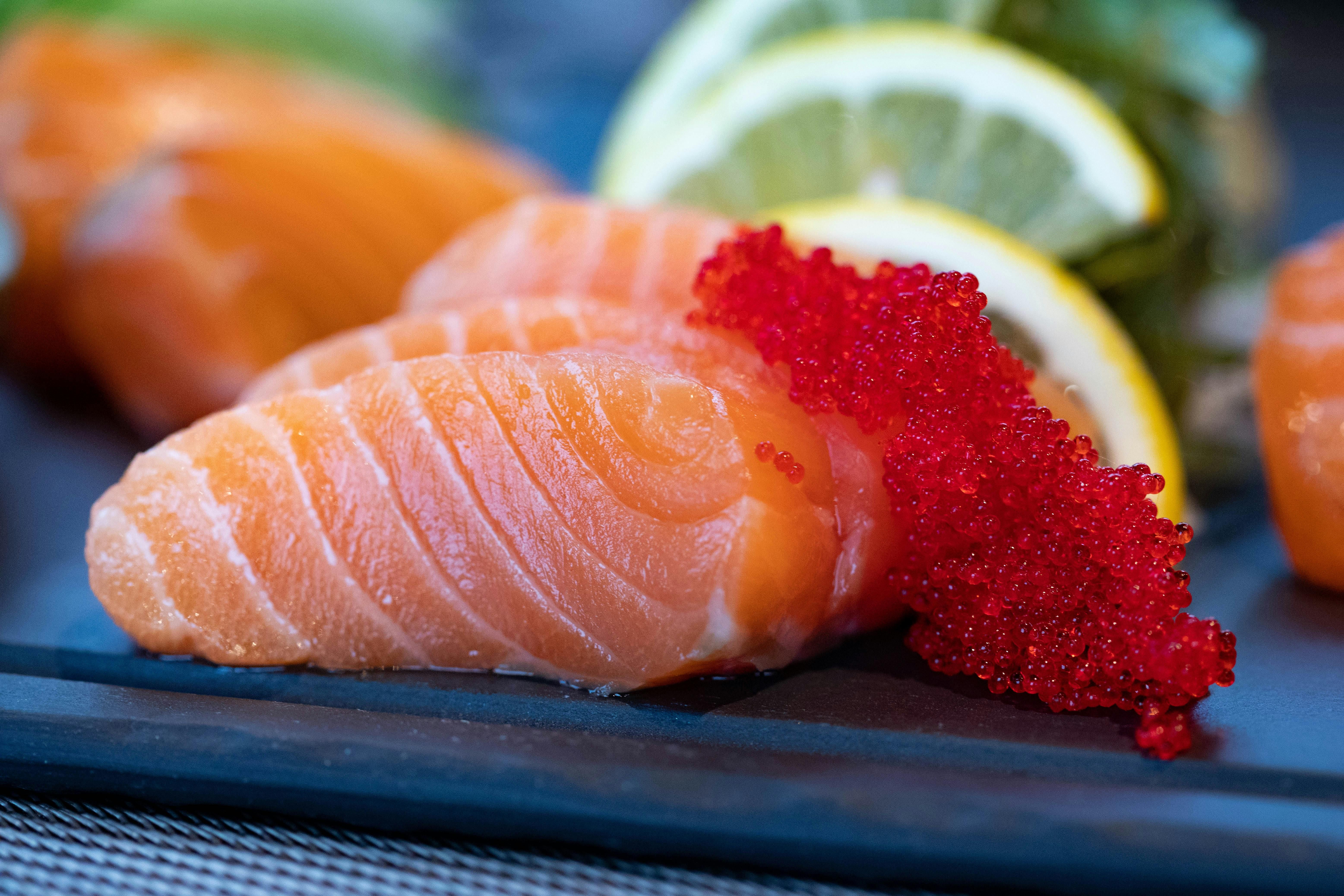
Avocado: Avocados are a superfood when it comes to healthy fats. High in monounsaturated fats, avocados can reduce inflammation in the body and are also packed with fiber, potassium, and magnesium.
Fiber-Rich Choices: Don’t overlook the power of fiber when it comes to fighting inflammation. Whole grains and legumes are your go-to sources for a happy gut, which directly translates to less inflammation throughout your body. Foods like quinoa, lentils, and beans not only add variety and texture to your meals but also support your digestive system and overall health with their high fiber content.
Oats: Oats are a heart-healthy whole grain that can lower cholesterol levels and support gut health. Their beta-glucan fiber is especially beneficial in reducing inflammation and improving immune response.
Turmeric: Last but certainly not least, let’s spice things up with turmeric. This golden spice isn’t just for adding color and flavor to your dishes; it’s loaded with curcumin, a compound known for its anti-inflammatory effects. Incorporating just a pinch of turmeric into your diet, perhaps in your morning smoothie or as a spice in your cooking, can provide powerful anti-inflammatory benefits and add an exotic twist to your meals.
Ginger: Ginger is another spice renowned for its anti-inflammatory and medicinal properties. It can help reduce muscle pain, soothe sore throats, and even alleviate nausea, making it a versatile addition to both your diet and your natural health toolkit.
Almonds and Flaxseeds: Almonds are rich in vitamin E, an antioxidant that can help combat inflammation and protect the body against free radical damage.
Flaxseeds, on the other hand, are loaded with ALA (alpha-linolenic acid), a type of omega-3 fatty acid that fights inflammation and supports heart health.
Green Tea: Green tea is celebrated for its high content of epigallocatechin gallate (EGCG), a compound with significant anti-inflammatory effects according to Anti-Inflammatory & Anti-Allergy Agents in Medicinal Chemistry. Regular consumption can help reduce the risk of chronic diseases and boost overall health.
By broadening your dietary choices with these anti-inflammatory foods, you can enjoy a rich tapestry of flavors that not only satisfy your taste buds but also contribute to a healthier, more vibrant life. The key is to incorporate a variety of these foods into your diet, allowing their synergistic effects to work together in reducing inflammation and enhancing your wellbeing.
Transitioning to an anti-inflammatory diet doesn’t have to be a chore or feel like you’re giving up all the foods you love. In fact, it can be a smooth, enjoyable journey into discovering new flavors and ingredients that not only tantalize your taste buds but also contribute to your health and wellbeing. Let’s talk about making this switch in a way that’s both simple and sustainable, shall we?
Begin by making small, manageable changes to your daily meals. For instance, opt for whole grains like quinoa or brown rice instead of reaching for white rice or other refined grains. This simple swap boosts your intake of fiber and nutrients, which are essential for combating inflammation.
Adding a handful of berries to your morning meal is another easy yet impactful change. Berries are loaded with antioxidants and can easily be incorporated into yogurt, oatmeal, or smoothies. This small addition not only enhances the flavor of your breakfast but also starts your day with a powerful anti-inflammatory punch.
Take a little time each week to plan your meals, focusing on including a variety of anti-inflammatory foods. Think colorful salads packed with leafy greens and veggies, hearty soups with lentils and spices like turmeric and ginger, or delicious smoothies blended with cherries and flaxseeds. Planning ahead ensures that you have the ingredients you need on hand, making it easier to stick to your anti-inflammatory goals.
Incorporate sources of healthy fats into your diet, such as avocados, nuts, and seeds, or fatty fish like salmon. These foods not only add richness and flavor to your meals but also provide essential fatty acids that fight inflammation. Try avocado on toast for a quick snack, add nuts to your salads for extra crunch, or enjoy a salmon fillet for dinner.
Hydration is key to flushing out toxins and keeping inflammation at bay. Make it more enjoyable by sipping on green tea or herbal teas throughout the day. Not only do they help you stay hydrated, but teas like green tea also offer additional anti-inflammatory benefits, making them a win-win.
Alright, let’s dive into the essentials beyond diet that combat inflammation, packed with the key info you need.
Exercise is a powerhouse against inflammation. Just 20 minutes of moderate activity can kickstart an anti-inflammatory response in your body, Mr. Hong says. It’s like hitting a reset button for your immune system, reducing inflammation markers with every step or stretch.
Stress, on the other hand, fuels inflammation. High cortisol levels, a byproduct of stress, are directly linked to increased inflammation. Simple stress-reduction techniques like deep breathing or meditation can lower cortisol and, in turn, dial down inflammation. It’s a straightforward strategy with powerful effects.

Don’t underestimate the role of sleep. Poor sleep can spike inflammatory markers, essentially putting your body on high alert. Aiming for 7-9 hours of quality sleep per night helps reduce these markers, allowing your body to heal and rejuvenate.
tip
In a nutshell, combining an anti-inflammatory diet with regular exercise, effective stress management, and quality sleep creates a comprehensive approach to fighting inflammation. Small, consistent changes in these areas can lead to significant improvements in your overall health.
Amy L., a happy user of our Prime Fasting app, couldn’t wait to share her story.
You know, before I stumbled upon Prime Fasting, I was pretty much at my wit’s end with inflammation. Then I tried out the app, and oh boy, what a game-changer! Following their tips, like loading up on those omega-3s and colorful fruits, getting my yoga on, and really focusing on catching those Z’s, made such a difference. It’s all about that mix, right? Not just when you eat but what you’re eating, keeping stress in check, and moving your body. And let me tell you, putting those tips into action with the app’s help didn’t just dial down my inflammation—it totally flipped my wellness game around. I’ve never felt better, more pumped, and yeah, happier. It’s like I finally got the inside scoop on managing my health, and I’m loving it!
Amy L.
Ladies, this is your gentle push towards filling your plates with anti-inflammatory foods. It’s about more than just eating right—it’s a commitment to a lifestyle that prioritizes nourishment and self-care. Each choice of an antioxidant-rich berry or omega-3-packed piece of fish is a step toward better health and well-being.
Embrace this journey with excitement and openness. It’s not focused on restriction but on enriching our diets with flavors that heal and choices that empower. Small, consistent efforts lead to significant transformations. Let’s enjoy each healthful bite and, together, make choices that uplift and nourish us, one meal at a time.
A: Anti-inflammatory foods include items rich in nutrients that help reduce inflammation in the body. These range from fruits and vegetables to whole grains, omega-3 rich fats, and spices, all known for their antioxidants and beneficial properties.
A: Absolutely. By integrating anti-inflammatory foods into your diet, you can lower the risk of chronic inflammatory diseases, improve digestive health, boost energy, and support overall well-being.
A: Results can vary based on individual health, diet, and lifestyle. Some might notice improvements within a few weeks, while others may take longer to feel the effects.
A: While many anti-inflammatory foods are generally beneficial, individual reactions can differ. If you have sensitivities or allergies to specific foods that could trigger inflammation for you, it’s best to avoid those.
A: Try to add a diverse array of colorful fruits and veggies, whole grains, lean proteins, and healthy fats to your meals. Explore new recipes focusing on these ingredients and reduce your intake of processed foods.
A: No specific diet plan is necessary to enjoy the benefits. Aiming for a balanced diet rich in plant-based foods and minimizing processed items and sugars is key. Customize your diet to your health needs and lifestyle for the best outcome.

When it comes to staying hydrated, electrolytes are the unsung heroes that keep your body balanced and energized, especially for active women. Whether...
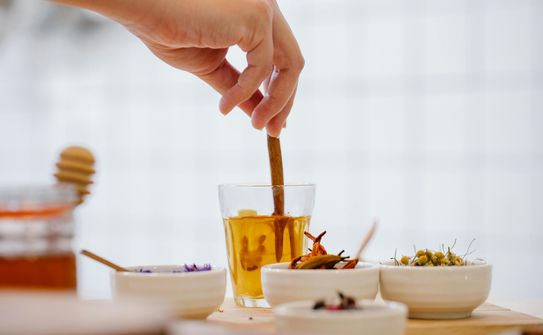
Throughout history, cultures across the globe have embraced the healing power of beverages made from herbs, spices, and natural ingredients to promote...
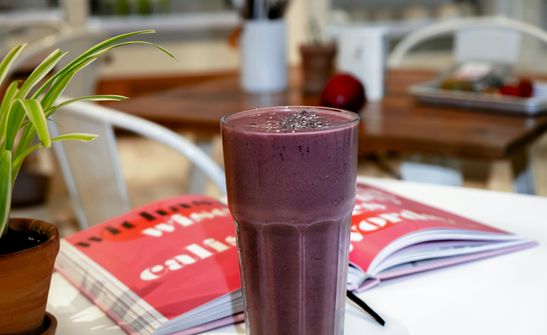
Smoothies are a great way to fuel your body with essential nutrients, but adding adaptogenic herbs can take your wellness routine to the next level. A...

Herbal teas have been cherished for centuries as natural remedies for promoting overall health and well-being. For women, in particular, herbal teas c...

Fermented beverages like kombucha, kefir, and other probiotic-rich drinks are gaining popularity due to their powerful effects on gut health. These dr...